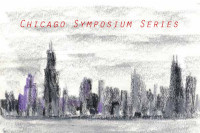University of Arizona, Harvard Kennedy School
The predictions of climate change are based on mathematics and statistics, yet their impact will be across continents, across societies, and studied by multiple disciplines. Our students will be the ones who must manage the effects of climate change. If effective, their responses will be interdisciplinary. The education they receive can set a powerful example. If it is interdisciplinary, if they see the faculty thinking across boundaries --intellectual, geographic, political -- they will be quicker to adapt and to think outside the box themselves. In addition, the desire to understand the world they will live in motivates students to learn the mathematics underpinning climate change predictions. This talk will provide examples of curriculum and of the interdisciplinary windows they can open in the classroom.
Deborah Hughes Hallett is Professor of Mathematics at the University of Arizona and Adjunct Professor of Public Policy at the Harvard Kennedy School. With Andrew M. Gleason at Harvard, she organized the Calculus Consortium based at Harvard, which brought together faculty from a wide variety of schools to work on undergraduate curricular issues. She is regularly consulted on the design of curricula and pedagogy for undergraduate mathematics at the national and international level and she is an author of several college level mathematics texts. She has co-authored a report for the National Academy of Science's Committee on Advanced Study in American High Schools, and is a member of the MAA Committee on Mutual Concerns and the College Board's Committee to review the Math-SAT. In 1998 and 2002 she was co-chair of International Conference on the Teaching of Mathematics in Greece, attended by several hundred faculty from about 50 countries. In 2006, she chaired the third conference in this sequence in Istanbul Turkey. She established programs for master's students at the Kennedy School of Government, precalculus, and quantitative reasoning courses (with Andy Gleason), and courses for economics majors. She was awarded the Louise Hay Prize and elected a fellow of the American Association for the Advancement of Science for contributions to mathematics education. Her work has been recognized by prizes from Harvard, the University of Arizona, and as national winner MAA Award for Distinguished Teaching.

